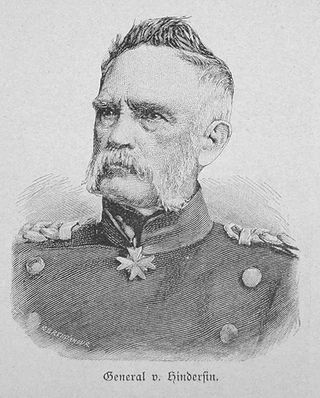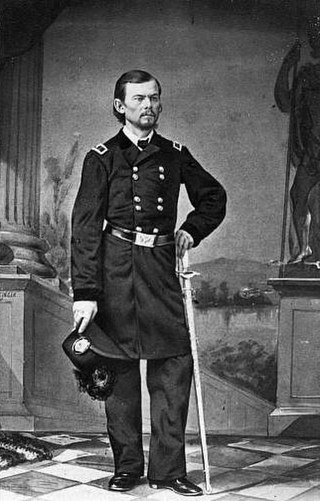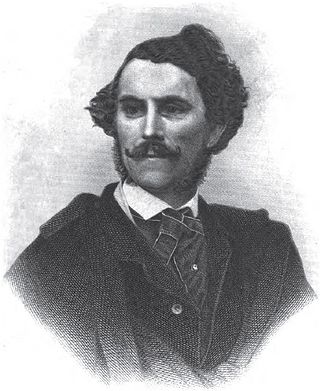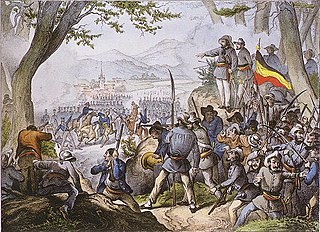Related Research Articles

Carl Schurz was a German revolutionary and an American statesman, journalist, and reformer. He migrated to the United States after the German revolutions of 1848–1849 and became a prominent member of the new Republican Party. After serving as a Union general in the American Civil War, he helped found the short-lived Liberal Republican Party and became a prominent advocate of civil service reform. Schurz represented Missouri in the United States Senate and was the 13th United States Secretary of the Interior.

The German revolutions of 1848–1849, the opening phase of which was also called the March Revolution, were initially part of the Revolutions of 1848 that broke out in many European countries. They were a series of loosely coordinated protests and rebellions in the states of the German Confederation, including the Austrian Empire. The revolutions, which stressed pan-Germanism, liberalism and parliamentarianism, demonstrated popular discontent with the traditional, largely autocratic political structure of the thirty-nine independent states of the Confederation that inherited the German territory of the former Holy Roman Empire after its dismantlement as a result of the Napoleonic Wars. This process began in the mid-1840s.

The Forty-eighters (48ers) were Europeans who participated in or supported the Revolutions of 1848 that swept Europe. In the German Confederation, the Forty-eighters favoured unification of Germany, a more democratic government, and guarantees of human rights. Although many Americans felt very sympathetic to them, many Forty-Eighters were Freethinkers who were more influenced by post-1789 republicanism in France and shared its traditional hostility towards tolerating religious practice or Classical Christian education, than by the American Republic's traditional belief in freedom of religion. Disappointed at their failure to permanently change the system of government in the German States or the Austrian Empire, and sometimes ordered by local governments to emigrate because of their involvement in the revolution, they gave up their old lives to live abroad. They emigrated to Australia, the United Kingdom, and the United States. They included Germans, Czechs, Hungarians, Italians, among many others. A large number were respected, politically active, wealthy, and well-educated, and found success in their new countries.

Rastatt is a town with a Baroque core, District of Rastatt, Baden-Württemberg, Germany. It is located in the Upper Rhine Plain on the Murg river, 6 km (3.7 mi) above its junction with the Rhine and has a population of around 51,000 (2022). Rastatt was an important place of the War of the Spanish Succession and the Revolutions of 1848 in the German states.

Gustav Struve, known as Gustav von Struve until he gave up his title, was a German surgeon, politician, lawyer and publicist, and a revolutionary during the German revolutions of 1848–1849 in Baden, Germany. He also spent over a decade in the United States and was active there as a reformer.

The May Uprising took place in Dresden, Kingdom of Saxony in 1849; it was one of the last of the series of events known as the Revolutions of 1848.

Gustav Eduard von Hindersin was a Prussian general from Wernigerode. Until 1864, when he was ennobled, his name was Gustav Eduard Hindersin.

Franz Sigel was a German American military officer, revolutionary and immigrant to the United States who was a teacher, newspaperman, politician, and served as a Union major general in the American Civil War. His ability to recruit German-speaking immigrants to the Union armies received the approval of President Abraham Lincoln, but he was strongly disliked by General-in-Chief Henry Halleck.

Alexander Schimmelfennig was a Prussian soldier and political revolutionary. After the German revolutions of 1848–1849, he immigrated to the United States, where he served as a Union Army general in the American Civil War.

Ludwik Adam Mierosławski was a Polish general, writer, poet, historian and political activist. Mierosławski took part in the November Uprising of the 1830s, and after its failure he emigrated to France, where he taught Slavic history and military theory. Chosen as a commander for the Greater Poland Uprising of 1846, he was taken prisoner early but amnestied during the Spring of Nations. In 1848 and 1849 he fought for the insurgents in Baden and in the Electorate of the Palatinate. Afterwards he returned to France; he also had contacts with Italian activists like Giuseppe Garibaldi. He also took part in the January Uprising in the 1860s, as the first of four dictators of the Uprising.

Louis Blenker was a German revolutionary and American soldier.

Otto Julius Bernhard von Corvin-Wiersbitzki was a German author.

Christoph Joseph Rudolf Dulon was a pastor of the Reformed Church (Calvinist) and a socialist agitator in Bremen; later he was an educator in the United States.
Karl Ulrich Friedrich Wilhelm Moritz von Hirschfeld, Prussian general, got his schooling in a military academy. In 1806, he entered into his father's regiment and participated in the unhappy campaign of that year. In 1809, he participated with his older brother Eugen in an uprising against the French occupation forces. This ended in their fleeing to England in 1809. Both joined the Spanish dragoons in their struggles against the French. His brother was killed in battle in 1811. Lieutenant Moritz received severe wounds two times in battle, and ended in French captivity. He escaped in 1813, under very dangerous circumstances. His 15 wounds made him barely recognizable when he received a medal for his actions. In 1814 he participated in the campaign in France as a lieutenant colonel in the Spanish army.

The Hecker uprising was an attempt in April 1848 by Baden revolutionary leaders Friedrich Hecker, Gustav von Struve, and several other radical democrats to overthrow the monarchy and establish a republic in the Grand Duchy of Baden. The uprising was the first major clash in the Baden Revolution and among the first in the March Revolution in Germany, part of the broader Revolutions of 1848 across Europe. The main action of the uprising consisted of an armed civilian militia under the leadership of Friedrich Hecker moving from Konstanz on the Swiss border in the direction of Karlsruhe, the ducal capital, with the intention of joining with another armed group under the leadership of revolutionary poet Georg Herwegh there to topple the government. The two groups were halted independently by the troops of the German Confederation before they could combine forces.

Karl Friedrich Theodor "Fritz" Anneke was a German revolutionary, socialist and newspaper editor. He emigrated to the United States with his family in 1849 and became a Union Army officer in the American Civil War, and later worked as an entrepreneur and journalist. He was the husband of Mathilde Franziska Anneke, the older brother of Emil Anneke, the first Republican Michigan Auditor General, and the father of Percy Shelley Anneke, well known in Duluth, Minnesota, as co-founder and owner of the famous Fitger Brewing Company.
The Baden Revolution of 1848/1849 was a regional uprising in the Grand Duchy of Baden which was part of the revolutionary unrest that gripped almost all of Central Europe at that time.

The Palatine uprising was a rebellion that took place in May and June 1849 in the Rhenish Palatinate, then an exclave territory of the Kingdom of Bavaria. Related to uprisings across the Rhine river in Baden, it was part of the widespread Imperial Constitution Campaign (Reichsverfassungskampagne). Revolutionaries worked to defend the constitution as well as to secede from the Kingdom of Bavaria.

The Imperial Constitution campaign was an initiative driven by radical democratic politicians in Germany in the mid-19th century that developed into the civil warlike fighting in several German states known also as the May Uprisings (Maiaufstände). These conflicts against the counter-revolutionaries began in May 1849 and varied in length and intensity depending on the region. Some lasted until July that year. They marked the end phase of the popular and nationalist March Revolution that had started in March 1848.
The Baden Army was the military organisation of the German state of Baden until 1871. The origins of the army were a combination of units that the Badenese margraviates of Baden-Durlach and Baden-Baden had set up in the Baroque era, and the standing army of the Swabian Circle, to which both territories had to contribute troops. The reunification of the two small states to form the Margraviate of Baden in 1771 and its subsequent enlargement and elevation by Napoleon to become the Grand Duchy of Baden in 1806 created both the opportunity and obligation to maintain a larger army, which Napoleon used in his campaigns against Austria, Prussia and Spain and, above all, Russia. After the end of Napoleon's rule, the Grand Duchy of Baden contributed a division to the German Federal Army. In 1848, Badenese troops helped to suppress the Hecker uprising, but a year later a large number sided with the Baden revolutionaries. After the violent suppression of the revolution by Prussian and Württemberg troops, the army was re-established and fought in the Austro-Prussian War of 1866 on the side of Austria and the southern German states, as well as in the Franco-Prussian War of 1870 on the side of the Germans. When Baden joined the German Empire in 1870/71, the Grand Duchy gave up its military sovereignty and the Badenese troops became part of the XIV Army Corps of the Imperial German Army.
References
- ↑ Carl Schurz (1913). Lebenserinnerungen Bis zum Jahre 1850: Selections. Edited with notes and vocabulary by Edward Manley. Norwood, Massachusetts: Allyn and Bacon. p. 217.
- Bernhard von Poten (1894), "Tiedemann, Gustav Nikolaus", Allgemeine Deutsche Biographie (in German), vol. 38, Leipzig: Duncker & Humblot, pp. 278–280